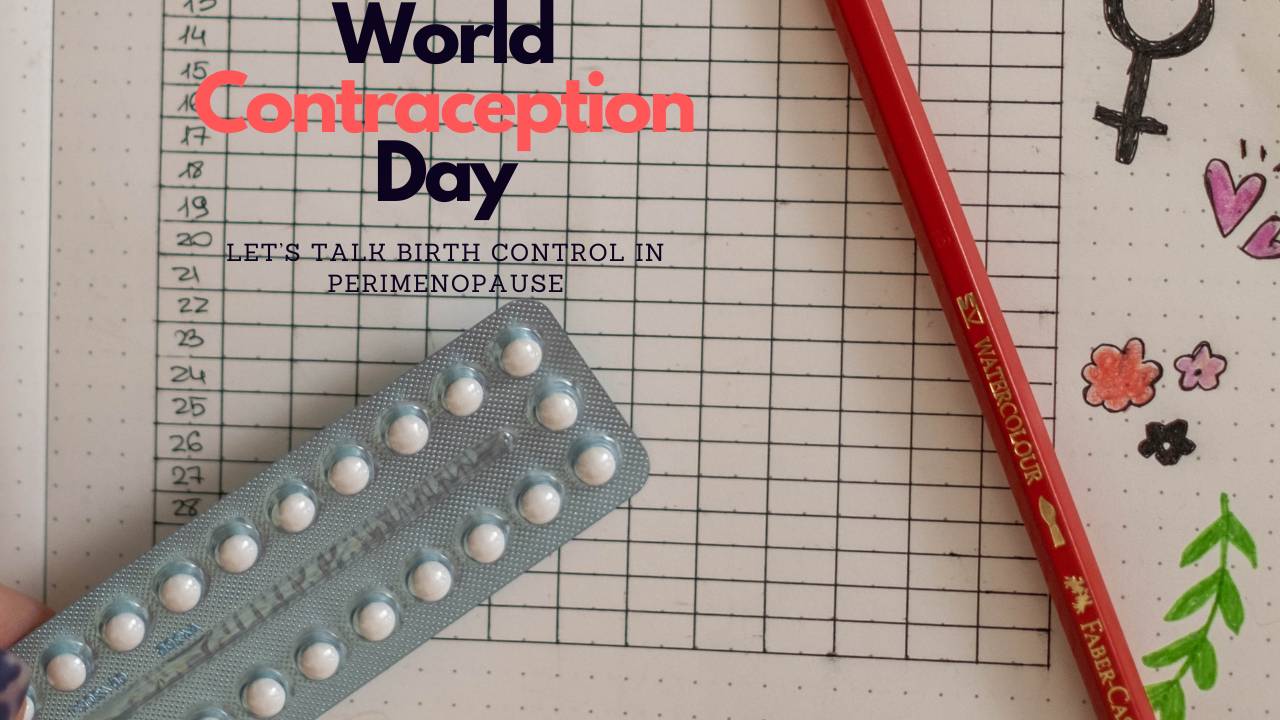Let’s Talk Birth Control in Perimenopause
Sep 26, 2025
When most people think about birth control, they picture younger women trying to avoid pregnancy. But here’s a surprising fact: women in their 40s still have a real chance of becoming pregnant—even if their periods are irregular.
That’s why World Contraception Day is the perfect reminder to talk openly about birth control in perimenopause. This stage of life comes with shifting hormones, unpredictable cycles, and unique health considerations, and contraception plays a bigger role than many realize.
Why Contraception Still Matters in Perimenopause
- Pregnancy is still possible
Perimenopause doesn’t mean fertility is gone—it just means it’s declining. Until you’ve gone a full 12 months without a period (menopause), pregnancy is still possible. - Cycle unpredictability
Hormonal ups and downs mean some months you may ovulate, others you may not. This unpredictability makes “guessing” unsafe as a form of birth control. - Health protection
Some forms of contraception offer more than pregnancy prevention. They can ease heavy bleeding, regulate cycles, reduce hot flashes, and protect bone density.
Birth Control Options in Perimenopause
- Hormonal Birth Control Pills
- Pros: Can regulate cycles, reduce heavy bleeding, and ease perimenopausal symptoms.
- Cons: May increase risk of blood clots or high blood pressure in women over 40, especially smokers.
- Hormonal IUD (Intrauterine Device)
- Pros: Long-lasting, highly effective, can reduce heavy bleeding.
- Cons: May cause irregular spotting at first.
- Copper IUD
- Pros: Non-hormonal, effective for up to 10 years.
- Cons: May increase bleeding or cramps in some women.
- Progestin-Only Methods (mini-pill, implant, injection)
- Pros: Safe for women who can’t take estrogen, may reduce heavy bleeding.
- Cons: May cause irregular bleeding or weight changes.
- Barrier Methods (condoms, diaphragm)
- Pros: Hormone-free, protect against STIs.
- Cons: Less effective than long-term methods if not used consistently.
Benefits Beyond Birth Control
Birth control in perimenopause isn’t just about preventing pregnancy. Depending on the method, it can also:
- Reduce hot flashes and night sweats
- Protect against endometrial and ovarian cancers
- Support bone health by stabilizing hormones
- Ease heavy, painful periods
Talking With Your Doctor
The “right” option depends on your health history, family risk factors, and personal comfort. A conversation with your doctor or women’s health specialist can help you weigh the pros and cons of each choice.
Important things to discuss:
- Your cardiovascular health (blood pressure, clotting risk)
- Family history of breast or ovarian cancer
- Whether you’re experiencing heavy bleeding or severe symptoms
- Your comfort level with hormones versus non-hormonal options
Bottom Line
Perimenopause is a season of transition—not the end of your reproductive health. Contraception is still important, both to prevent unintended pregnancy and to manage symptoms that come with hormonal shifts.
This World Contraception Day, let’s open the conversation: contraception in your 40s and 50s isn’t just about control—it’s about choice, health, and support through one of life’s most important transitions.
Your body is changing. Your choices matter more than ever.
Stay connected with news and updates.
Join our mailing list to receive the latest news and updates from our team.
Don't worry, your information will not be shared.
We hate SPAM. We will never sell your information, for any reason.



